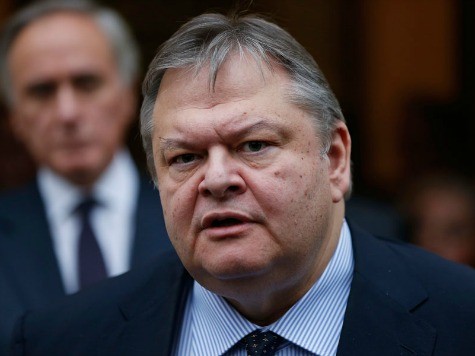Tensions in the Eurozone rise as the continent’s rockiest economy braves taking the helm of the entire European Union. With Greece’s Foreign Minister Evangelos Venizelos becoming the new head of the EU, European countries put their fate in the hands of a nation even they admit is “seriously ill.”
As the six-month governance of the European Union lands in the hands of Greece, the country faces the challenge of running the entire continent while they figure out how to best run themselves.
2013 was a year of slight economic recovery and complete political chaos for the nation. The EU’s bailouts have managed to stabilize some sectors of the economy despite Greece’s serious problems with social safety nets and wasteful spending during the 2004 Athens Olympic Games that have greatly inflated the national debt. On the other hand, the country’s Nazi party, Golden Dawn, grew in popularity and violent nature this year to the point of triggering the death of a prominent musician and activist, Pavlos Fyssas, and being outlawed by the government of Greece. The subsequent arrests of members of Parliament voted in as Golden Dawn candidates uncovered treasure troves of Nazi and Ku Klux Klan paraphernalia, terrifying many of Greece’s moderate voters.
Greece’s internal struggles have caused alarm in some sectors of Europe that this is the country that will lead the Eurozone. Ta Nea, Greece’s biggest national newspaper, collects, with some disgruntlement, the highlights of what Europe is saying about their country: Italians concerned with the “explosive social situation” in the country; The Guardian taking an anti-Brussels stance at Greece’s rise; a German newspaper having to dig back into ancient history to say something nice about the country. Spain’s ABC sees the EU presidency as a public relations opportunity for the nation to prove itself to a continent that sees it as “bankrupt and ruined.” Cyprus, always a loyal ally, seems content with the new leadership, though.
Compared to most economic programs run by the Greek government, the budget allotted for their tenure actually appears to be, in the words of Der Spiegel, “frugal.” The government plans to spend only $68 million during their administration of the EU, significantly less than their predecessors. The Greek team responsible for presenting the country’s policy goals while running the EU refused to allot for unnecessary travel–with Athens hosting all 140 meetings of the EU Council during their tenure–and even refused to pay for the traditional ties and scarves handed out as souvenirs to council members by every new governing nation.
One thing is certain: Greece will not face the same violent and extreme opposition to their frugality while running the much more stable EU economy than the government does while trying to run its own people. Everything that could help increase the state’s income and pay down their prodigious economic debt–from pay cuts for their myriad government workers to any proposed tax–is met with thousands of protesters inhibiting traffic and causing mayhem in the streets. This is why so many international papers, as Ta Nea notes, seem significantly more concerned with Greece’s social situation than their economic one. One feeds the other. Greece’s government, now finally out of the hands of Socialist International President George Papandreou, still cannot move forward if society actively refuses to let the government exit their lives. And in at least this one tiny way, the Greek government has found a way to redeem itself: govern as it always wanted to govern at a much broader scale, where their constituency will be significantly more cooperative and open to reform.
And govern on the cheap, because the world is watching.

COMMENTS
Please let us know if you're having issues with commenting.